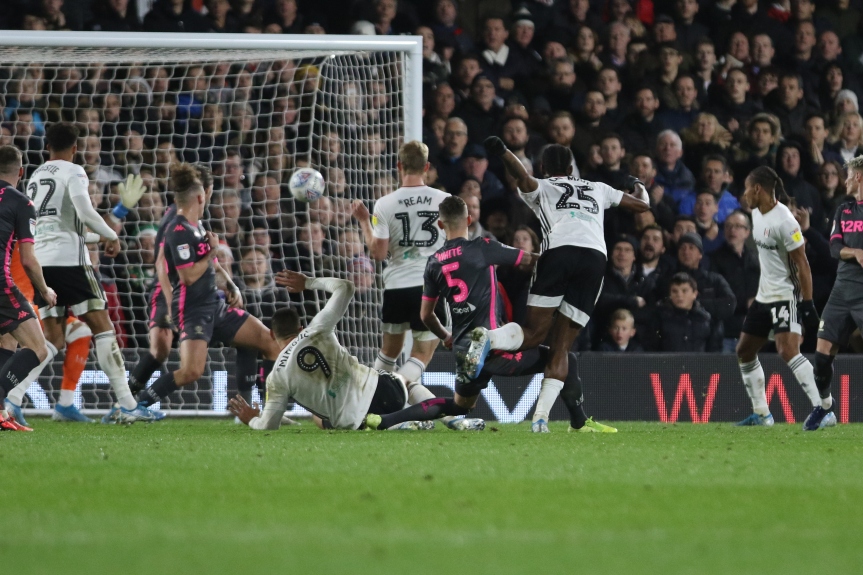WHEN Fulham kick-off the 2021-22 season against Middlesbrough on August 8 at Craven Cottage, it will herald the start of their fifth consecutive campaign of changing divisions. Promoted twice, in 2018 and 2020, Fulham have also suffered two relegations, in 2019 and 2021, and undoubtedly, they will be among the favourites for promotion from the Championship in 2022. Life is rarely dull in Stevenage Road, London SW6.
Fulham have recently published their 2019-20 financial statements (why does it take so long for football clubs to reveal their finances?) and although the they were successful on the pitch, they posted a pre-tax loss of £ 49 million. This should come as no great surprise as the club saw its revenues drop by 58% in 2019-20 to £ 58 million, once more underlining the imbalance between the Premier League and the English Football Club – in 2018-19 they generated £ 137.7 million.
Fulham may have offloaded some of their bigger earners after relegation in 2019, reducing their wages from £ 92.6 million to £ 72.6 million, but the wage-to-income ratio almost doubled in 2020 from 67.2% to an intimidating 125.2%.
The club’s bottom line was improved by a £ 25 million profit from player trading, a tenfold increase on 2018-19. Their last notable sale was Ryan Sessegnon who moved to Tottenham for around £ 25 million in August 2019.
Fortunately, Fulham have a generous, and it would seem, patient owner who has funded the club’s ambitious plans, including something of a spending spree when promotion to the Premier was achieved in 2018. Fulham spent over £ 100 million in 2018-19, the third highest outlay in English football that season, but the data-driven acquisition of mostly little-known but potential-rich players didn’t yield the envisaged success – Fulham went through three managers and were relegated after looking naïve and lacking in experience. The club is still paying for that summer of high enthusiasm and even higher hopes.
A more cautious approach in 2019-20 saw them win promotion again via the play-offs. Shahid Khan, the owner since 2013, injected £ 78 million of cash into the club in 2020, which has been converted into equity. Without Khan’s backing, Fulham’s finances would look a little scary.
But they still need to have more than one eye on Financial Fair Play. Their loss limit for 2019-20 was £ 61 million, so they were heading ominously towards that figure. However, the rules have been loosened a little around FFP due to the pandemic and will treat 2019-20 and 2020-21 as a single season and work on an average loss over the two.
As well as relegation in 2019, the 2019-20 season was hampered by the pandemic, which meant matchday income dropped by 48% to £ 5.6 million and broadcasting revenues were 60% lower at £43.7 million. Even commercial income, which has held up well at many clubs, dropped by 52% to £ 8.5 million. Overall, Fulham’s revenues were the highest in the Championship, although Leeds, West Bromwich Albion, Huddersfield, Swansea and Stoke were not far behind. Fulham’s matchday income should increase in the near future as the redevelopment of the Riverside stand nears completion, a project that will add more than 4,000 to the capacity of the popular and iconic Craven Cottage.
But Fulham’s swift return at the end of 2019-20 should come as no great shock given their wage bill, which was the second highest in the Championship after Leeds United, who were also promoted. There are also parachute payments to consider, Fulham received £ 42 million and were one of seven clubs benefitting from post-relegation compensation.
Fulham’s status at the moment is a club with strong ownership that just cannot consolidate in the top flight. Their financial strength gives them an advantage over many clubs, but after securing promotion, they come up against opponents with greater resources and more savvy.
Stability is needed for Fulham to look beyond one-season stays in the Premier League, which includes both income and team management, as well as a pragmatic mindset. Just a few seasons among the elite, as opposed to the current game of snakes and ladders, would make such a difference to one of English football’s most popular institutions, both on and off the pitch.
@GameofthePeople


One thought on “The roller-coaster ride of Fulham”